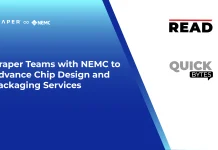Agenus Inc., a leader in discovering and developing novel immunological agents to treat various cancers, announced updated results from its Phase 1 clinical trial of BOT/BAL combination therapy in patients with metastatic CRC that is not microsatellite instability-high (MSS) or deficient mismatch repair (dMMR). These findings build upon the compelling clinical activity demonstrated by BOT/BAL across nine different cancer types in Agenus’ broad clinical development program.
In the Phase 1 trial of 77 patients with refractory MSS-CRC without active liver metastases, a 23% overall response rate (ORR) was observed after a median follow up of 13.6 months at the data cutoff of March 1, 2024. The median duration of response in 18 responders was not yet reached. The estimated 12-month and 18-month OS rates were 71% and 62%, respectively. The median OS was 21.2 months.
The Phase 2 trial has completed enrollment and the company plans to discuss the encouraging interim results with the U.S. Food and Drug Administration (FDA).
“These results underscore the potential of BOT/BAL in metastatic CRC, the second leading cause of cancer mortality in the U.S.,” said Steven O’Day, M.D., Chief Medical Officer at Agenus. “We continue to work expeditiously to bring this promising combination to patients in need.”
Pending planned meetings with the FDA, Agenus plans to submit a Biologics License Application (BLA) for BOT/BAL in refractory MSS CRC later this year and plans to present detailed Phase 2 efficacy results, including response durability and updated Phase 1 survival data, at a major medical conference in the second half of 2024. This growing body of clinical evidence underscores the significant potential of BOT/BAL to transform the treatment landscape for difficult-to-treat solid tumors.
Agenus is a leading immuno-oncology company targeting cancer and infectious diseases with a comprehensive pipeline of immunological agents. The company’s mission is to expand patient populations benefiting from cancer immunotherapy through combination approaches, using a broad repertoire of antibody therapeutics, adoptive cell therapies (through MiNK Therapeutics) and adjuvants.
SOURCE: Businesswire




